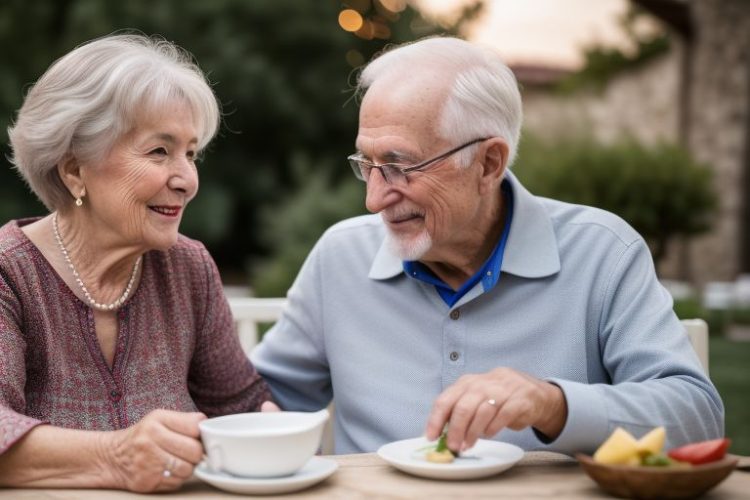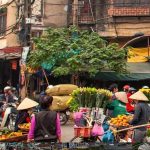Introduction
A lot of people have the dream of retiring abroad as it allows them to spend their golden years in a new, exciting environment. All this may seem pretty captivating with promises of sunny beaches, charming cities, and serene countryside, but the real flavor of a rewarding retirement lies in living amidst local culture. One of the single biggest factors that will enrich your retirement experience is getting to know and embracing the cultural nuances of your new home. This guide discusses how to engage with local culture, adapt to a new environment, and genuinely live your international retirement to the fullest.
Embracing Local Traditions and Customs
The next step toward discovering local culture when retiring abroad is to get involved in the traditions and customs of your new home. Indeed, each country has its unique traditions, festivals, and social practices that make up that very cultural landscape. Participating in these allows one to know better the local way of life and create meaningful connections with the community.
Start going to local festivals, holidays, and public events around you. All these celebrations are a big display of cultural heritage and offer a great way to experience the traditions up close. Whether it’s a traditional dance festival in Bali, a local food fair in Tuscany, or any national holiday celebration in Tokyo, all these events are like looking right into the heart of culture.
Moreover, knowledge and exposure to the local way of life would also give you a better chance at assimilation. These may include dinner nuances, greeting habits, or dress code for particular occasions. Respectfulness and receptiveness toward such practices raise not only the level of your experience with the culture but also your regard toward your new home.
Learning the Language
One of the prime modes of cultural expression, language is also a critically important tool for deepening your connection with your new community. Although many locations have a sizable English-speaking population, the effort you make in learning a local language will dramatically enhance your experience abroad. This allows you to engage more fully with locals and participate in community activities, as well as the mundane parts of daily life.
Start with simple words, then move on to greetings, and develop your vocabulary gradually as you become more confident. Language classes or language exchange programs either in your local area or online could be a great way to achieve this. Don’t get too disheartened if you have initial difficulties. Your effort will be much appreciated by your new neighbors, and it will reap better results from all of your interactions.
Getting Involved in the Community
Get involved in the life of your new community to ease immersion into local culture and making new friends. Perhaps joining some local clubs, organizations, or volunteer groups that align with your interests would be helpful to do so. This will not only help you meet people but also engage in activities for societal betterment so that you understand the local issues and values.
The same can be said for community activities that provide a chance to learn from local experts and enthusiasts. Be it attending cooking classes to learn traditional recipes, joining book clubs to discuss local literature, or simply volunteering at a community center, all of it goes a long way in getting a feel of the cultural fabric of your new home.
Local Cuisine
Food is core to culture and provides the most delicious way to get familiar with new surroundings. Local cuisine captures the history, geography, and spirit of a place, hence being intrinsically part of the cultural experience. So, get to know your new home by visiting the local markets, trying out regional dishes, and hitting up some of the more popular eateries.
Don’t be afraid to step out of your culinary comfort zone and try new flavors and foods. Markets are always a good source of inspiration for learning about new ingredients and how to cook them using the local method. You can even take a cooking class or two during your stay to learn some of the recipes and techniques yourself. This can be an interactive and fun way to experience the culture.
Making Local Friends
Realistic relations with locals can make the experience of living abroad so much more rewarding. Learning the neighborhood, getting to know your neighbors, making friends, and being social allows a person insight into the local way of life and gives a sense of belonging.
Bring your sense of curiosity and an open mind into new relationships. People in your host community will help you find your way, share their insights, and support you in furthering your understanding of what may be obscure in the culture but perhaps less likely to come your way. Be friendly, respectful, and genuinely interested in people, and this will help the contacts develop on a positive note and integrate you better in the new place.
Being able to adjust to the local lifestyle and habits
While settling in a new country, the most important thing is getting adapted to the local customs and way of life. It may be attuning one’s life to the different social norms or routine differences—maybe even climatic conditions. All these changes have to be met with flexibility and an open mind.
For example, you may have to get used to different shopping habits, modes of transport, or healthcare systems. Knowing and accepting these differences will make your transition easier and more pleasurable. Besides, you can learn from locals—by observing them—many things about everyday life and how one can deal with situations.
Finding a Balance Between the Host Culture and Personal Taste
Although getting inside the local culture is important, it is equally important for you to keep a balance in adjusting to a new environment and in preserving your personal taste. Retiring abroad means you will have the opportunity to be able to blend your interests and values with the local culture in an area so unique that it gives you and others a fulfilling retirement experience.
The second aspect to consider would be the integration of elements from home culture into daily life while embracing new experiences at the same time. This could include celebrating familiar holidays, cooking traditional meals from home, or keeping in touch with friends and family back in the UK. It is finding a balance of these aspects that will allow one to feel more at home as much as experiencing the richness of new surroundings.
Conclusion:
It can make all the difference between living in a new country and becoming part of a lively community: discovering and embracing local culture abroad in retirement. Starting from respecting the traditions of the land to learning the language, trying new food, and participating in different activities, you will have a meaningful and rewarding life all your senior years.
Developing relationships with the locals and the ability to adjust to new customs and lifestyles will ease the path of settling and provide a deeper connection with the new home. On the other hand, maintenance of personal tastes and interests ensures the retirement experience remains truly yours.
This is a new exciting chapter of your life, and such is the case when immersing in local culture—not just to blend into a new environment but to reach out for new chances of development and discovery. You will be best suited to make good memories of your retirement abroad in this new home if you keep an open mind and willingness to learn.

Ray Brocklesby, the site owner, is a Brit who now lives in the Philippines. He is retired and lives with his wife Weng, Daughter Kristelle, nephews, Harvey and Boknoy, and mother-in-law. Ray also has a son and daughter living in the UK, and a son in New Zealand.













